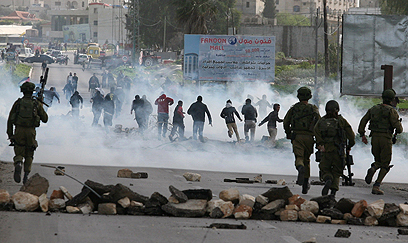By Brendan Oliver Bergh
Impunity Watch Reporter, South America
PORT-AU-PRINCE, Haiti – Jean-Claude Duvalier, Haiti’s former dictator known as “Baby Doc” return to Haiti was not the homecoming he might have expected. Fleeing the country in 1986 fearing political upheaval and pressure from the United States the ex-president returned to Haiti in early 2011 after a 25 year exile. Upon his return a Haitian court has levied charges of embezzlement; however human rights groups have demanded that he not be excused for his regimes human rights abuses.

Duvalier took the office of “President for Life” at age 19 after his father, Francois “Papa Doc” Duvalier in 1971. Baby Doc ruled Haiti with his brutal militia in order to maintain control of the country.
Some people speculate that Duvalier’s return may have been for legal impunity. While a January 2012 Haitian court declared that Mr. Duvalier would have to stand trial on the count of embezzling public funds, the court also declared that the statute of limitations had run out on the charges of murder, torture and forced disappearances.
While the statute of limitations may have run out for murder according to Haitian courts, Amnesty International and Navi Pillary, the High Commissioner of the United Nations for Human Rights was quick to point out that there is no limitation for international crimes such as torture, extrajudicial executions, and violations under international law. Pillary continued that Haitian authorities must not allow crimes and abuses from the regime go unpunished, as crimes done in an official capacity do not bar a sovereign from claiming immunity from the civil or criminal jurisdictions of foreign states.
Ex-President Duvalier was supposed to stand before a Court of Appeals judge earlier this month to see if he would stand trial for human rights abuses. The ex-President already missed a January 31st and February 7th hearing date which would have decided whether or not he would face a Haitian court for human rights abuses for crimes committed under his regime.
The exiled leaders’ refusal to attend a hearing where he might be charged with crimes against humanity has been seen as an affront to his victims and their families. There have been suggestions from Haitian human rights groups that he be seized and stripped of his diplomatic passport so he would meet his next court date and not flee the country. So far the former president has not been penalized for his blatant skirting of the law and its procedures.
For more information, please see:
ABC – Haiti’s ‘Baby Doc’ Summoned To Court After No-Show – 21 February 2013
BBC – Haiti’s ‘Baby Doc’ Duvalier Avoids Appearing In Court – 21 February 2013
El Confidencial – Jean Claude Duvalier Also Appeared In Court This Time Haiti – 21 February 2013
Noticias Sin – Duvalier Haitian Court Orders Be Carried Hearing Next Week – 21 February 2013



